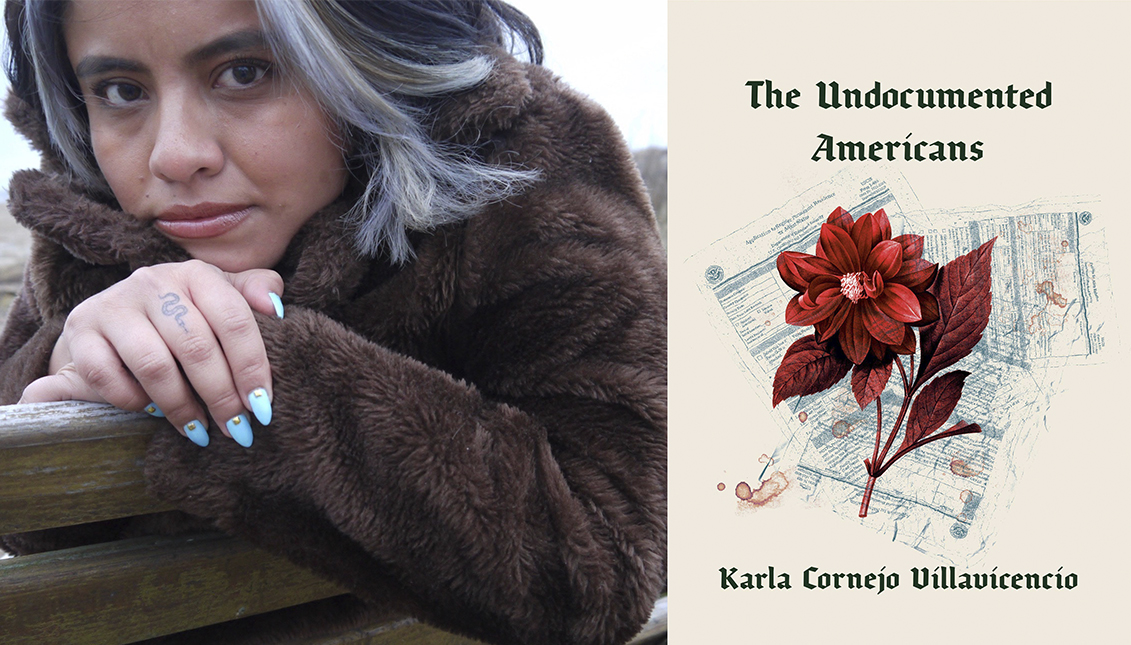
The Undocumented America: "I don't want to perpetuate the message of pain"
Karla Cornejo Villavicencio's radical (and necessary) debut in non-fiction that has challenged narrative about migrants in the U.S.
Karla Cornejo Villavicencio has a tattoo on her forearm that reads "Fuck ICE". She is punk, she is queer, she is a "semi-documented" immigrant in the United States and one of the first undocumented students at Harvard.
Her story is not much different from that of millions of other young migrants who have grown up between two worlds-Karla came to the country illegally at the age of five from Ecuador and her parents worked hard to give her and her brother an education, she says. But what does make her an exception to the rule is that this prodigious writer refuses to continue feeding a biased and victimizing portrait of migrants in the U.S.
Her non-fiction debut, The Undocumented America, is a collection of essays reporting on the true migrant experience with its lights and shadows, which for the author made a journey into the family past. But also to the trauma of being a migrant. To the mental illness resulting from the long uprooting not exempt from moments of fun, tenderness and also shipwreck.
"Feeling gratitude towards your parents, paying them back for the effort they have made with your grades or going to church is not the best message for young migrants. This kind of gratitude can metastasize and you can end up paying for it in more toxic ways, such as denying your queer feelings," says the author, for whom the sense of a migrant graduating from college should be empowering and not living in debt to the family.
"I don't want to keep perpetuating the message of pain, we have to think about the mental health of young people," she says during a virtual chat with Andrea González-Ramírez.
Karla is tired of the perspective given to migrants in books as "people who love to work hard" and who are stupidly "connected to the earth." Neither she nor her family fit that story, nor do the people she spoke to and met in a profound way during the writing of the book. So when she collected her stories, she made a deal with them: she would take notes in a notebook, she would not record the conversations but listen to them carefully. But, above all, she promised that she would do something radical so that no white person could say "How cute or sad!"
Heir to Gabriel García Márquez's journalistic style - "magic realism is a belief system," she says - Cornejo Villavicencio traveled around the country collecting the experiences of people who do not usually appear in the media. Among them, a group of undocumented workers in New York fighting physical and mental illness as a result of the toxins they were exposed to while cleaning up after 9/11; or a pharmacy in Miami where people without papers can buy psychotropic drugs without a prescription.
RELATED CONTENT
Also the conversation with a group of day workers in Staten Island who told her about a friend, a smart guy, who had ended up drunk and homeless because he could not process the trauma of his past.
But she also recreates that other happy and liberated face of the immigrant women through experiences like that of Salome, an undocumented Argentine female whose husband died of cancer at age 46 after being denied access to medical treatment because of his illegal status, and who now, when her children are older, goes out to drink margaritas and dance with her friends to return late to her 20s.
Raised in Queens, where her parents now live, Karla admits that she feels guilty for surviving the Covid-19 when the Latino and especially undocumented community is suffering the onslaught of the virus and dying because of the state's neglect.
"Many people who have faced gender-based violence or genocide or an epidemic feel guilty about having survived," she says. In her book she addresses that trauma, the mental problems faced by undocumented migrants, the high rates of suicide within the community and how this pain, which she seeks to exorcise in The Undocumented America, spreads.
Karla has the borderline mental condition, something she has never hidden and which, she says, may have been a product of the years she spent away from her parents - they left Ecuador when she was 18 months old and came back for her years later - at least so therapists say.
For her to write is to resist, which makes her get up in the morning. Undoubtedly, The Undocumented America is also a book about resistance. About vices, ghosts, and traumas, but also about real people whose experience is enlightening because it is sincere.
"You can't be in love with America, not yet. That disqualifies you," she told NYT.











LEAVE A COMMENT:
Join the discussion! Leave a comment.